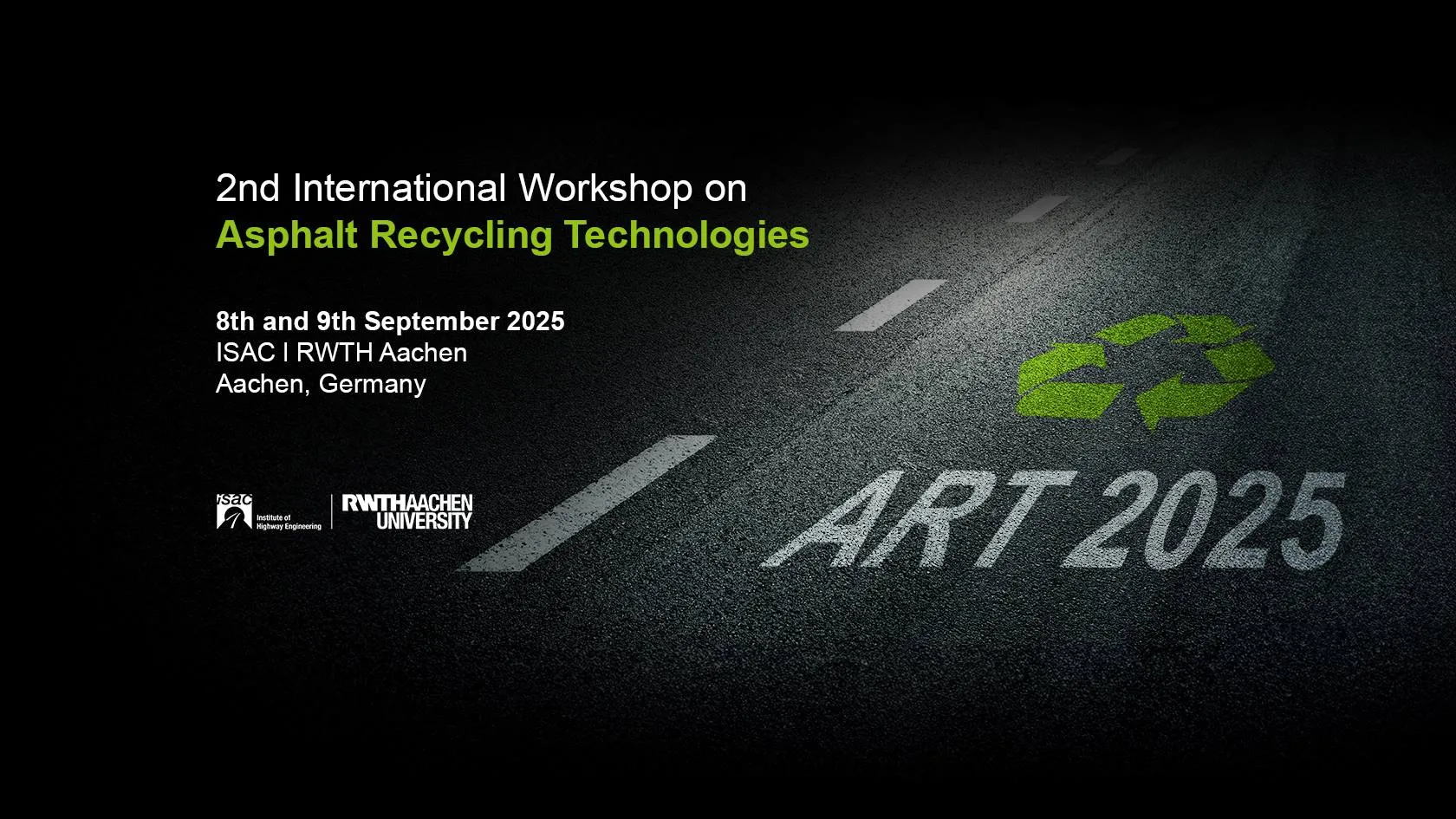
Following the enormous success of the inaugural International Workshop on Asphalt Recycling Technologies event last year, the Institute of Highway Engineering (Institut für Straßenwesen – ISAC) at RWTH Aachen, is returning this year with the second in this series of events.
The event takes place at the Tivoli Business & Event Area in Aachen on September 8 and 9.
The Institute of Highway Engineering says the response to the first event clearly underscored the particular importance of the dialog between experts in this forward-looking field. Participants from across the industry, including highway construction engineers, institutional decision-makers, research scientists from technical universities, and other professionals from the road construction sector, showed enormous interest throughout the course of the event and subsequently responded to the practice-based workshop with positive feedback.
The Institute comments: "After all, they were in full agreement that sustainable road construction is one of the biggest challenges of our times. Innovative recycling technologies are crucial to the achievement of sustainability in this field and offer enormous potential for all parties involved in the road construction process. Today, a change in thinking throughout the road construction industry can already lead to the use of large volumes of reclaimed asphalt pavement material (RAP) and considerable reductions in terms of costs and CO2 emissions."
The 2nd International Workshop will once again set the focus on the topic of asphalt recycling and provide insights into existing and successfully implemented methods and processes. The workshop will also be presenting methods and technologies that already have a proven track record in practice. The potential applications of these will be discussed on the basis of facts and figures and the latest case studies.
Discussions will cover the environmentally friendly aspects of cold in-situ recycling, road rehabilitation with in-situ recycled asphalt, cold in-plant recycling, cost/benefit analyses and application technologies. In the case of hot in-plant recycling, the focus will be on the issues of energy-efficiency, the sustainable use of resources, and quality assurance in asphalt production.
Processes in the area of cold recycling must be standardized, and existing hot recycling processes must be improved. There is still undeveloped potential in these fields.
The practice-oriented program will include presentations of the latest scientific and application-specific developments by specialists from the various fields of interest. On the topic of cold recycling methods and processes, Brian K. Diefenderfer, PhD., P.E. will be giving a talk on the current status of asphalt recycling in the USA and future solutions. Diefenderfer is one of the world’s leading experts in this field. The civil engineer has been head of the research department at the Virginia Department of Transportation for the past 21 years. His take on the subject: “Cold recycling enables faster and more sustainable road pavement rehabilitation with considerably lower costs.”
Martin Hugener, PhD, will be giving a talk on the challenges and current technologies in the field of hot recycling in asphalt mixing plants. He is an active researcher in the Asphalt and Concrete laboratory at EMPA Materials Science Technology in Switzerland, specialized in bituminous binders and road materials since 1993.
The event will be moderated by the two experts, Kim Jenkins, Professor in Pavement Engineering at Stellenbosch University in South Africa, and Martin van der Ven from TU Delft, Netherlands.
If you wish to attend this international specialist workshop, visit the following website and register by August 1: www.art2025.net.
The website also provides further information about the event program. The event will be held in English.








